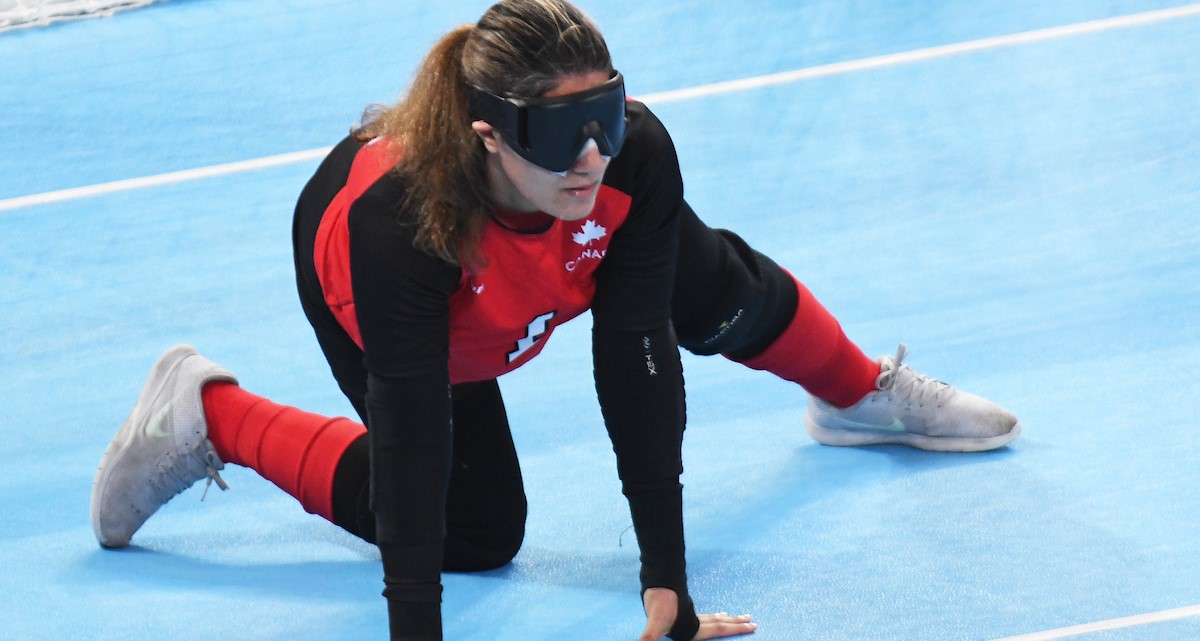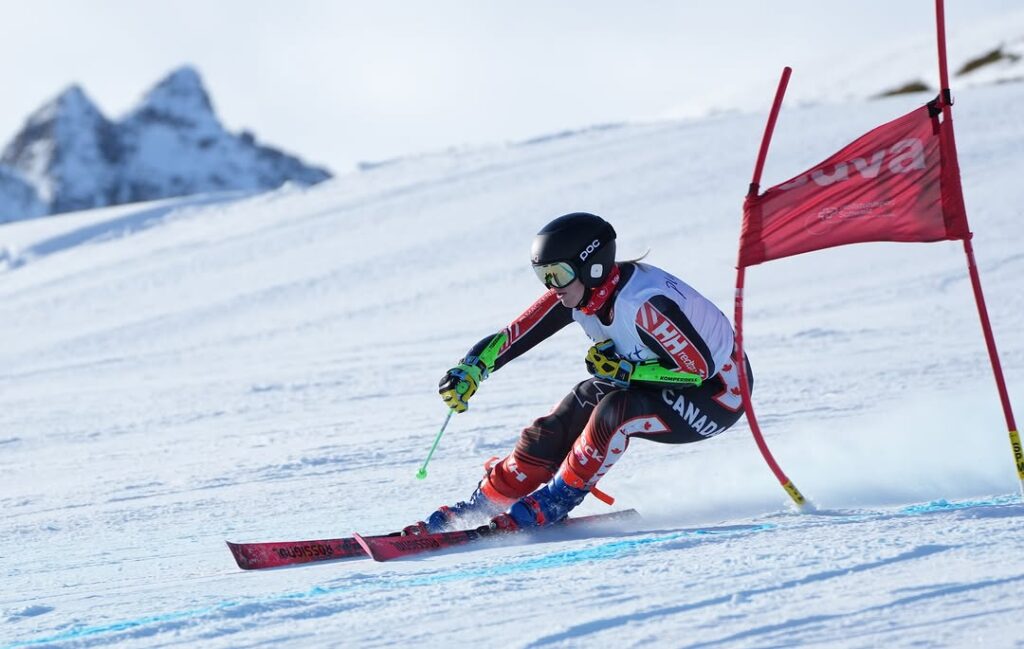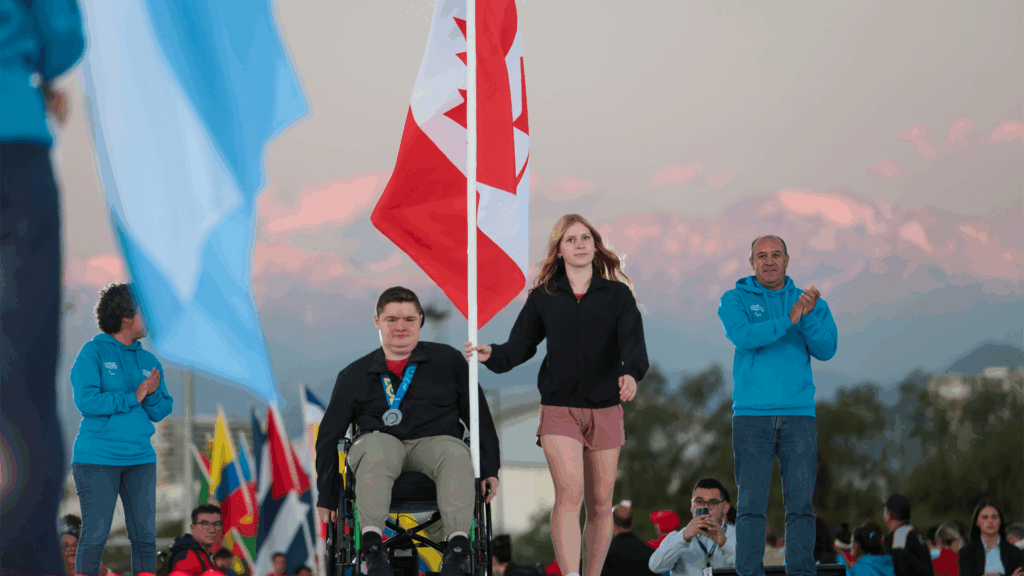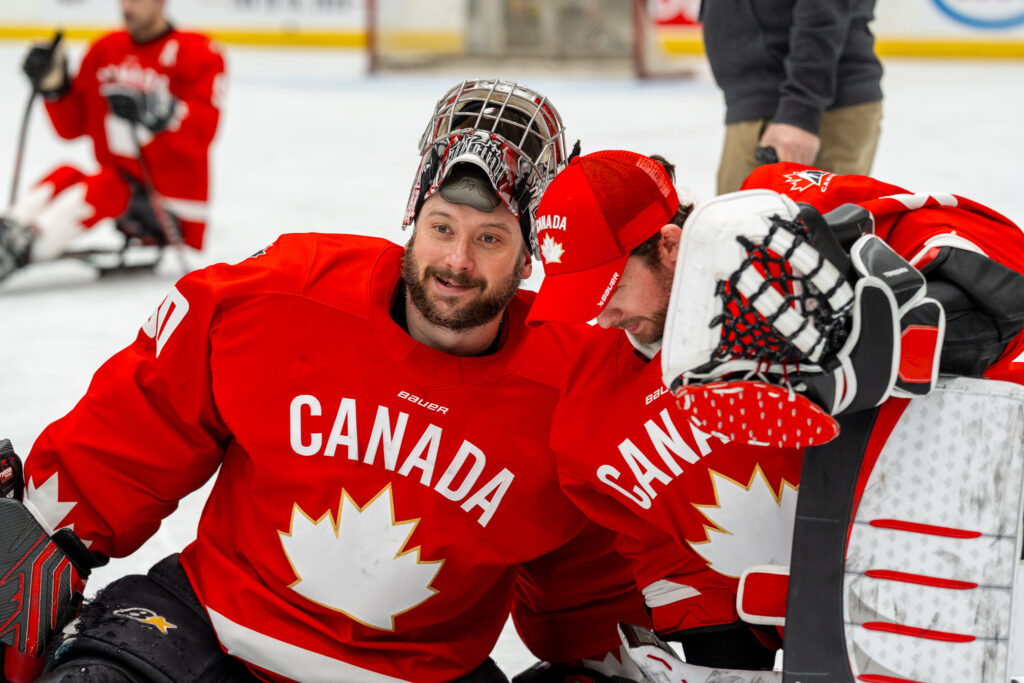Canada’s Maryam Salehizadeh beats odds to make first Paralympic team
Goalball forward proud to wear maple leaf in her new homeland

When Maryam Salehizadeh learned she was named to Canada’s goalball team for her first Paralympic Games, it was a great personal achievement. But her road to Tokyo was far different than any other Canadian team member.
The 34-year-old was born in Iran, where she was diagnosed with retinitis pigmentosa, which has reduced her vision to only five percent. Despite the challenges, Salehizadeh’s parents wanted their daughter to gain independence.
In Iran, that can be difficult for a woman, let alone one born with a visual impairment. But in the end, Salehizadeh succeeded. It required courage, many tough decisions and self-belief.
Sports played a large role to help Salehizadeh overcome many barriers.
At 14 she started playing goalball, loving it immediately and dedicating herself to excellence. She made Iran’s first ever national women’s goalball team. That squad would be unable to compete for a 2016 Paralympic Games spot at a qualifier because Israel was one of the opponents.
Salehizadeh was considered the top female player in Iran and was named “Best Offensive” player at the 2010 and 2014 Asian Para Games.
“It was my dream to compete at the Paralympics,” she said. “We argued that sport had nothing to do with politics. We were told to stop complaining and go home and have babies.”
While she competed, Salehizadeh also coached high school kids with disabilities before she was barred from fulfilling that role. Through all this, she pursued an education and earned a bachelor’s degree in physical education and sports management from the University of Tehran.
By the end of 2016, however, enough was enough. Salehizadeh made an incredibly brave decision to leave the country of her birth. She left her parents and three brothers behind. Despite speaking little English and having a serious disability, she landed in Vancouver and claimed refugee status.
One of her first contacts in Vancouver was Ahmad Zeividavi of the Canadian men’s national goalball team. Zeividavi, also born in Iran, has been wearing Canadian colours since 2010 and competed at two Paralympic Games.
He directed her to the British Columbia goalball program where she immediately made a big impression and eventually graduated to the national team. In 2018 she received her permanent resident card, opening the door for Canadian national team status.
That same year, she won the silver medal with Team BC at the goalball nationals, then in 2019 she wore the maple leaf for the first time at the Lima Parapan American Games where Canada won the bronze. Salehizadeh made an impressive Games debut ranking 13th in tournament scoring with six goals in five games including one marker in the bronze-medal game.
‘’I was so proud to be part of that team,’’ said Salehizadeh, currently studying English at Vancouver Community College with hopes to pursue a career as either an ESL teacher or a settlement worker. ‘’I couldn’t believe it.’’
Then the pandemic hit and Salehizadeh was forced into a life of isolation as social distancing can be a challenge for a visually impaired person. But some good news eventually appeared as she received her first carding in January 2021 and she was able to start training again with others.
After four and half years of separation, she was reunited with her parents in early 2021 for a mere 18 days before they were forced to return home due to COVID. Her 19-year-old brother has joined her in Canada and is currently under refugee status and completing his grade 12 education.
Now she is preparing for a big trip to Tokyo to help the Canadian women’s goalball team reach the podium for the first time since it won back-to-back gold medals in 2000 and 2004.
“We are going to try our best,” she said from Ottawa this month where she was attending a national team camp. “Everyone is excited, and we want to come home with a medal.”
What a story that would be.



"*" indicates required fields
"*" indicates required fields